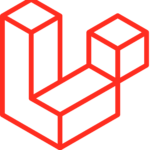C++ is a popular programming language that can be found in many GUIs, embedded systems, and operating systems. It’s a general-purpose PL that supports object-oriented and procedure programming. Modern C++ has generic, functional, and object-oriented, as well as low-level manipulation features.
Table of Contents
Tutorials and Courses
Here are the best tutorials and courses to learn C++.
- Beginning C++ Programming – From Beginner to Beyond – This course is ideal for beginners without any coding experience and for those who want to improve their career options by learning a popular and in-demand programming language. It’s also perfect for those who want to add C++ to their skill set. You will learn the main concepts of programming that also apply to other PLs. The course teaches modern C++, so expect to learn advanced features such as polymorphic functions. It also includes challenge coding exercises, assignments, live coding exercises, and quizzes.
- LearnCpp – LearnCpp provides tutorials that will teach you how to debug, write, and compile C++ programs. It has plenty of examples, as well. LearnCpp can be accessed for free. You will also learn dynamic casting, object slicing, pure virtual functions, interface classes, abstract base classes, and everything you need to know to program in C++.
- Learn Advanced C++ Programming – Learn Advanced C++ Programming covers the basic and advanced features of C++. You will learn how to build a program that creates fractal images using some of the language features discussed in the course. Learn Advanced C++ Programming also covers arrays and smart pointers, C++ file handling, template classes, lambda expressions, move constructors, and operator overloading. It includes exercises, too, so you can practice what you have learned. This course is ideal for anyone who wants to improve their basic knowledge of the language and for those who know C++ 98 and want to be more knowledgeable in C++ 11 features.
- C++ Tutorial – C++ Tutorial includes 80+ lessons that cover a wide range of topics, including pointers, loops, objects, functions, data types, conditional statements, basic concepts, and classes. Even if you have no programming experience, you can take this course. You can also collect points, take quizzes, unlock new levels, and even compete with other people from different countries.
- C++ For Programmers – This is a “how-to” course. It teaches you how to create something using C++. For instance, it teaches you how to build functions in the C++ language. C++ for Programmers is ideal for those who know a programming language and want to learn C++. You will learn from instructors who have used the C++ language in their careers. Tips and comments from the original C++ designer, Bjarne Stroustrup, are also included in the course.
- Modern C++ Concurrency in Depth – This course teaches modern C++11 concurrency in depth including the basics of concurrency (threads, mutex, package_task, future , async, promise), memory model, lock-free data structures, and in-depth discussion on thread pools.
Online C++ Compiler
- onlinegdb – GDB online is an online compiler and debugger tool for C/C++ language. Developers can compile with gcc/g++ and can debug using gdb.
- Tutorialspoint – This website is famous for its lots of tutorials in many programming languages. The tool is provided by them to help compile C online.
C++ IDE and Compiler
- Visual Studio – Desktop development with C/C++. Build modern C/C++ apps for Windows using tools of your choice, including MSVC, Clang, CMake, or MSBuild.
- turboc – Turbo C is an IDE for writing programs in the C language. It offers a source code editor, a fast compiler, a linker, and an offline help file for reference.
- CodeLite – CodeLite is an open-source, free, cross-platform IDE specialized in C and C++ programming languages that run best on all major Platforms ( OSX, Windows, and Linux ).
What is C++?
C++ is a multi-paradigm programming language that supports both low-level and high-level programming. It was developed in 1998 by Bjarne Stroustrup of AT&T Bell Laboratories, originally with the name “C with Classes”. C++ has since then been changed to stand for “C Plus Plus” or just “C+”, but it is still usually referred to as “C++” when speaking.
It contains many new features that were not present in C, some of which include classes, namespaces, operator overloading, function name overloading, references/strong typing/RTTI (runtime type information), STL (Standard Template Library), templates, and exception handling. This makes C++ a multi-paradigm language that is both compatible with old code written in the C programming language while also adding new features for more advanced programmers.
This programming language has had many implementations since its creation but the most common are GNU Compiler Collection(GCC) by the Free Software Foundation for Linux Systems and Visual Studio by Corporation for Windows Systems.
Besides writing software, C++ is useful if you want to make games using Unreal Engine.


